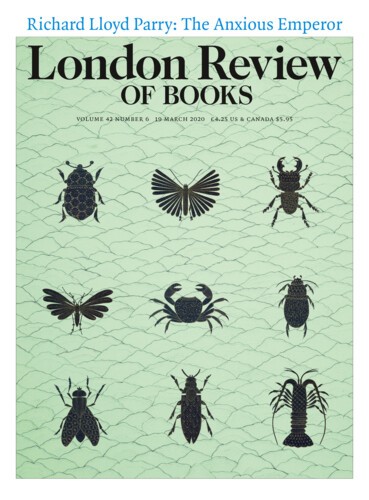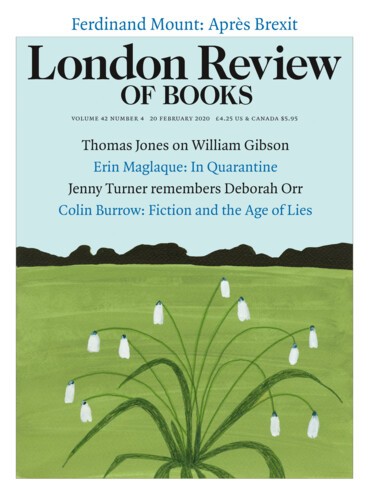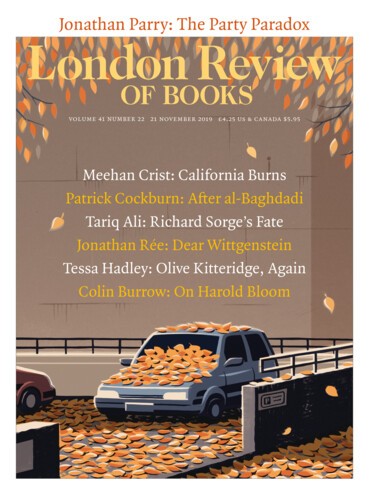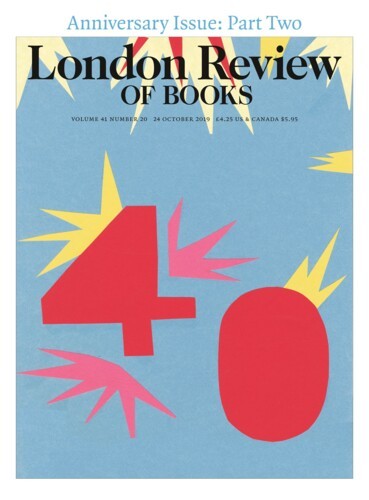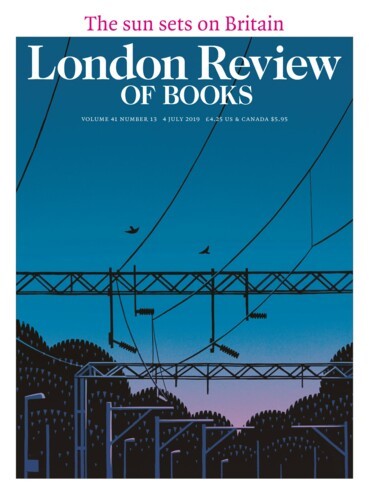Charm with Menaces: ‘The Mirror and the Light’
Colin Burrow, 19 March 2020
Although this final volume may overwhelm with its bulk, it will not disappoint. But there are two questions that might now be asked of the completed trilogy. How has such a hugely intelligent historical fiction managed to be such a popular success? And will it last? These two questions are interconnected, because the Cromwell novels may finally seem just a little too keen on talking to their age to become permanent classics. The Mirror and the Light sometimes contains asides that read like closed captions or spoken footnotes, with one character explaining to the reader something every Tudor person would already know: ‘Archbishop Cranmer is sending me a new translation of the scriptures’. At these moments Mantel might have heeded the words addressed by her Wyatt to Cromwell: ‘Be careful . . . You are on the brink of explaining yourself.’
